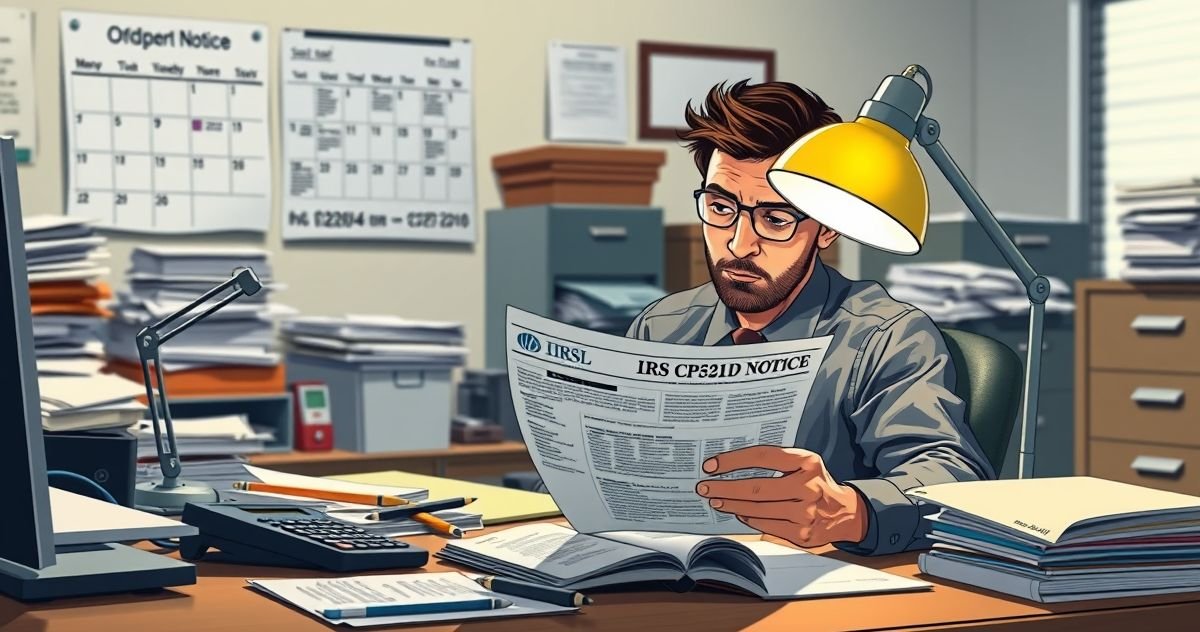Understanding the CP521D Notice: A Comprehensive Guide
The CP521D Notice is one of the many notices issued by the Internal Revenue Service (IRS) to communicate critical information to taxpayers regarding their tax accounts. Specifically, the CP521D Notice serves as a reminder for taxpayers who have entered into an installment agreement with the IRS, informing them about their upcoming payment expectations. As a taxpayer, staying informed about such notices is essential to maintaining compliance with tax obligations and avoiding any unintended consequences.
What is the CP521D Notice?
The CP521D Notice serves as a periodic reminder to taxpayers who are currently enrolled in an installment agreement with the IRS. The primary purpose of the notice is to ensure that taxpayers are aware of the scheduled payment on their account and the amount due by the specified date. The installment agreement is a payment plan that allows taxpayers to pay off their tax debts over time, easing the financial burden of a lump sum payment.
Key Features of the CP521D Notice
The CP521D Notice typically includes several important components and details:
- Payment Reminder: The notice indicates the upcoming payment due date and the amount that should be remitted. It is crucial for taxpayers to adhere to this schedule to avoid defaults.
- Account Summary: The notice provides a brief overview of the taxpayer’s account status, including the balance and any applied payments to date.
- Instructions for Payment: The CP521D includes instructions on how to make the payment, whether online, by check, or through other methods provided by the IRS. This ensures clarity on how to satisfy the payment obligation correctly.
- Consequences of Non-Compliance: Missing a scheduled payment can have significant consequences. The notice often outlines these potential issues, including penalties or the risk of the installment agreement’s termination.
Filing and Compliance Requirements
Compliance with the CP521D is relatively straightforward but requires timely actions:
- Timely Payments: It is imperative that taxpayers make their installment payments by the due date listed on the notice. Failure to do so may result in penalties and could jeopardize their installment plan.
- Updating Financial Information: If a taxpayer’s financial situation changes, it may be necessary to contact the IRS to discuss potential adjustments to the payment terms.
- Maintaining Communication: Keeping in touch with the IRS regarding any issues or misunderstandings about your installment agreement is vital for maintaining compliance.
Penalties and Consequences for Non-Compliance
Ignoring or failing to comply with the CP521D Notice can lead to several negative outcomes:
- Late Payment Penalties: The IRS may impose penalties on late payments, increasing the amount owed beyond the initial agreement.
- Interest Accumulation: Interest may continue to accrue on any unpaid balance, further compounding the taxpayer’s debt.
- Termination of Agreement: If a taxpayer fails to make their scheduled payments, the IRS reserves the right to terminate the installment agreement, demanding the full amount immediately.
- Possible Enforcement Actions: In extreme cases, the IRS may initiate enforcement actions such as wage garnishments or levies on bank accounts to collect the debt owed.
The Importance of the CP521D Notice
The CP521D Notice serves a vital role in ensuring that taxpayers remain on track with their installment agreements. Its significance is particularly notable for taxpayers who rely on these agreements to manage their tax liabilities in a more financially sustainable manner. By adhering to the guidance provided within these notices, taxpayers can avoid the stress and financial strain that can come with falling out of compliance.
Conclusion
In conclusion, the CP521D Notice is a critical communication from the IRS for taxpayers with installment agreements. Understanding its contents, complying with its directives, and maintaining clear communications with the IRS are all essential steps for taxpayers to uphold their tax obligations effectively. By taking these actions, taxpayers can successfully manage their tax responsibilities, minimize additional costs from penalties or interest, and maintain a good standing with the IRS.



